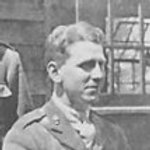|
 Edward Victor Appleton, a Nobel Prize winning physicist was born on September 6, 1892 in Bradford, West Yorkshire, England. He was born to Peter and Mary Appleton and was educated at Hanson Grammar School. He won a scholarship at the age of eighteen to attend St. John’s College at Cambridge University. He graduated from Cambridge with a degree in natural science and physics. Edward Victor Appleton, a Nobel Prize winning physicist was born on September 6, 1892 in Bradford, West Yorkshire, England. He was born to Peter and Mary Appleton and was educated at Hanson Grammar School. He won a scholarship at the age of eighteen to attend St. John’s College at Cambridge University. He graduated from Cambridge with a degree in natural science and physics.
During World War I, Appleton joined the West Riding Regiment and then later the Royal Engineers. After the war, in 1920, he began working as an assistant demonstrator at the Cavendish Laboratory at Cambridge. From 1924 to 1936, he was a professor of physics at King’s College London. During this time, Appleton worked on his famous experiments using radio waves.
Prior to Appleton’s work, scientists believed there was something in the upper atmosphere that reflected radio waves. Appleton used the British Broadcasting Corporation (BBC) transmitter to send a signal up into the atmosphere. By varying the wavelength of the signal, he was able to determine the height at which the waves were reflected back to the earth. This reflecting layer is sixty miles up and is now called the ionosphere. Two years later, he discovered another reflecting layer at 150 miles. This layer is now called the Appleton layer. It reflects short waves around the globe. Appleton’s work with radio waves led directly to the development of radar technologies.
In 1936, Appleton returned to Cambridge for three years as the chair of natural philosophy. Upon leaving Cambridge again, Appleton became the secretary of the Department of Scientific and Industrial Research. This coincided with the beginning of World War II. Two years later, he became a member of the Scientific Advisory Committee for the War Cabinet. This group informed the government of the feasibility of creating an atomic bomb. In 1943, Appleton traveled to the United States and Canada to collaborate with North American Scientists on the subject.
Throughout the war, Appleton continued his own research and discovered that sunspots change the reflectivity of the ionosphere. He also found that the sunspots themselves emitted radio waves.
Appleton received many awards for his work in physics research. He won the Nobel Prize in physics, the United States Medal of Merit, the Office of the French Legion, the Norwegian Cross of Freedom, and the Albert Medal of the Royal Society of Arts among many others. He died on April 21, 1965.
Image: Edward Victor Appleton in army uniform, taken in World War I.
|